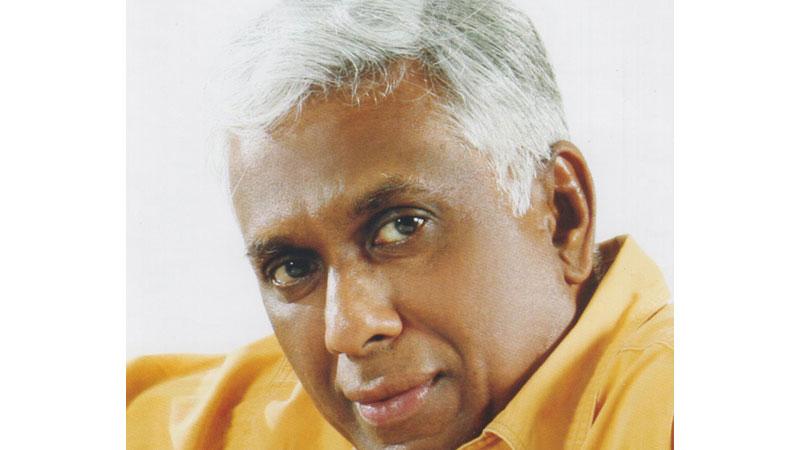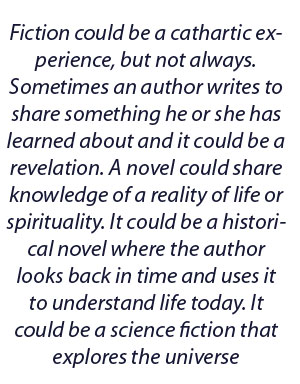
Novelist, vocalist, screenwriter and actor, Bhadraji Mahinda Jayathilake will launch his new Sinhala novel, Midori, published by Sarasavi Publishers soon. Bhadraji, born in 1948, migrated to the USA in 1973 and has written over 125 books in Sinhala and English, and eleven of his novels have been serialised in leading newspapers in Sri Lanka.
He has written radio plays for children (Lama Ranga Peetaya) and adults (SLBC Guwan Viduli Rangamadala) and stage plays in Sinhala and English in which he has played the lead roles. He has also directed one teledrama (Dhana Kuverayo) and one film (Wehi Dawasa).
Bhadraji has won many awards for his art and writing, including the prestigious D.R. Wijewardena Award for best novel in manuscript form, Sri Lanka State Literary awards for his English and Sinhala (Planet Purple, Americave Kasawatha), Golden Poet Award from American World of Poetry (for There Were No More Dragons to Kill), All Ceylon Buddhist Congress Award for Best Buddhist Themed Novel for three of his novels (Dineka Kusinarawe, Visala, Prasenajith). The Sunday Observer sought his views on his literary career.
Excerpts:
Q: Could you elaborate your new novel, Midori?
A: Though the novel sounds Japanese, it is only the name of liquor that plays a role in the story. The novel has a love story with an initial tragedy, which in the long run ends in a greater understanding of life, love and relationships. There are elements of suspense, mystery and spirituality.
Q: How do you describe your fiction?
A: I write fiction in all genres - romance, suspense, mystery, science, spiritual and life in general, including fiction for the youth and children. I have written over 125 books and half of these could be considered as fictions in English and Sinhala. I have also written short stories.
Q: Some critics say fiction is a cathartic experience. How do you view this idea?
A: Fiction could be a cathartic experience, but not always. Sometimes an author writes to share something he or she has learned about and it could be a revelation. A novel could share knowledge of a reality of life or spirituality. It could be a historical novel where the author looks back in time and uses it to understand life today. It could be a science fiction that explores the universe.
Q: Though you have been living in America for a long time, you always set your story in a Sri Lankan context, particularly in a rural setting?
A: My stories are not always about rural life in Sri Lanka. Some of them are set in America, such as ‘Zimba - The Black Hero of the Appalachia’ for which I won the State Literary Award. ‘My Planet Purple’, for which I won the State Literary Award as the best Children’s book, deals with a child on another planet. ‘Love in the City Below’ is a futuristic novel about life after the Ozone layer is destroyed. There are Sinhala novels, such as Suradoothapura and Thuraga Thanithala which are set in modern day California. Many of my Buddhist novels are set in ancient India during the Buddha’s time. Visala, Prasenajith and Dineka Kusinarawe all won the All Ceylon Buddhist Congress Literary awards as the best novels. My Gethsemeni Sandhyawa is based on Jesus’s life and the Bible.
Q: Isn’t it difficult to write a fiction in a language which you cannot hear in your background?
A: I do think and hear in English and Sinhala. Even when I do a translation from English to Sinhala or vice versa, I have to think in both languages. From an early age, I found it easy to switch from one language to another.
Q: Every year you write a novel or two and translate a book or two. How do you adjust time to do these?
A:I love writing. Since I enjoy it, I find it easy to write. I have story ideas in my head and I make notes on all of them. Currently, I am reading a biography of Charles Dickens. I was inspired by him even as a child. He was writing three novels at one time to be serialised in different publications. I always find time to write. While driving or cooking or doing house work, I can make use of time to do creative thinking. Most of my lyrics and melodies were created while driving long distances.
Q: Can a writer engage in multiple projects when he writes a novel?
A: I do enjoy multiple projects. While writing, I teach college classes in theatre and art. My water colour technique classes are popular at the colleges. I have done stage plays in Sinhala and English in California. Most were done as College Theatre workshops while others were for bigger audiences in Los Angeles. I act and direct in most of these productions. I also write and direct for television and screen. I helped to start the first TV station in Sri Lanka and worked for Rupavahini and the ITN.
Q: How is your art of fiction?
A: One has to think creatively. I do a lot of visualisation. As someone who studied Cinema and Television, I always see my stories on a big screen in my mind. Then you have to think of character build up, situations, moods and locations.
Q: You don’t seem to research for a novel as you are writing more than one fiction per year?
A: I did research for two novels at one time. One is Gethsemeni Sandhyawa which is based on Jesus’s life and the Old and New Testaments and the other is Dineka Kusinarawe. In the first novel, I had to do a lot of research about Jerusalem and its environs, the history, geography, politics at the time. I learned about the other people, such as the disciples and Mary Magdalene. Dineka Kusinaware is based on Maha Parinibbana Suthra. As with all of my other Buddhist based novels, I had to do research about the time, place, politics, geography, history and the people. Both books came out on the same day from Sarasavi Publishers. When I wrote about ancient China Pawuru Bandi Raajyaya, I did a lot of research relating to the era.
Q: Some critics say that you have mistaken the novel for a religious book, because there are some elements of reincarnation in some of your fiction?
A: I do have the topic of reincarnation in some novels. We all have to think of where we come from and where we are heading. We have to understand cause and effect which is the base of all teachings, though people do not realise that.
Q: When you end a fiction, invariably you mention the date and time of its completion?
A: Yes. The date of completion is important to me and gives a history to my writing! It may not mean anything to the reader, but it means a lot to me. It tells me how old I was when I wrote something.
Q: You once said that when you translate a book, sometimes you do not read it before you translate it which means you engage in translation while reading it?
A: You are right! In some translation works, I just place the English book in front of me and start translating it into Sinhala. But most books, I do browse through before I start the work.
Q: Once I saw your manuscript of a novel and I didn’t see any correction marked on it. How do you write a fiction without making any correction? Don’t you edit a manuscript?
A: I do not edit much after writing. The story flows through me and I leave it at that because that is the way it is. There are times that I do a few changes. But the story is already written and edited in my mind. I take a lot of notes before starting to write.
Q: You write novels just by hearing a story from someone?
A: I may get an idea for a novel from a story I have heard or a spark of imagination I had. A story always starts with a spark of imagination. It is up to the writer to make it a blaze or just a cozy warm flame or fire. I see the title of the book in my mind and sometimes I even see the book cover before writing the book. I feel like it is already written and all I have to do is to put on paper! That is the magic of writing!
Q: Great writers do not write many books, but we see writers tend to write many books as fast as they can?
A: Great writers, such as Dickens wrote many novels in his life time. Some other writers have also written many books in their life time. Others may write one or two books like J.D. Salinger.
Q: Though you write many books, you rarely won a literary award for the fiction apart from the Buddhist literary awards?
A: I have won three State Literary Awards in Sri Lanka: Two of them for my English books and one for a Sinhala translation. I won the D.R. Wijewardene Award for Pawuru Bandi Raajyaya and won Pahan Pela Drama Script Award for Rosa Paata Punchi Geka, best stage play award from Aloka Ranga Sabha for Kandu Sikarai Gamburu Helai which I adapted here as an English Musical titled ‘Somewhere Up There’. It is too bad what we do in America is not seen or heard of in Sri Lanka!
Q: How do you see the present Sinhala novel in comparison with the international literary arena?
A: Sinhala novel is limited in its content and style, because, I think, our writers are not exposed much to world literature. Perhaps some of them were inspired by early Russian writers. G.B. Senanayake, W.A. Silva and Martin Wickramasinghe had read much foreign literature. The latter was inspired by Mark Twain and other American writers as well. Sinhala novels do not make much of splash in the International literary scene because, at large, the world is not interested in our culture or our way of life.
Q: What is your next book?
A: My next novel is about Frogs and Toad, a fascinating tale.
